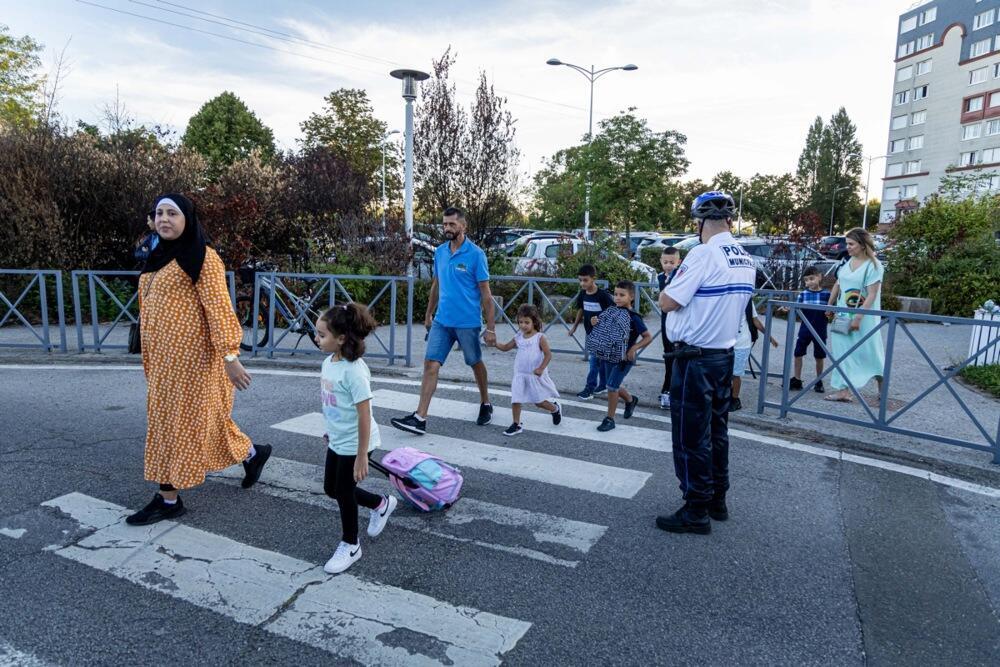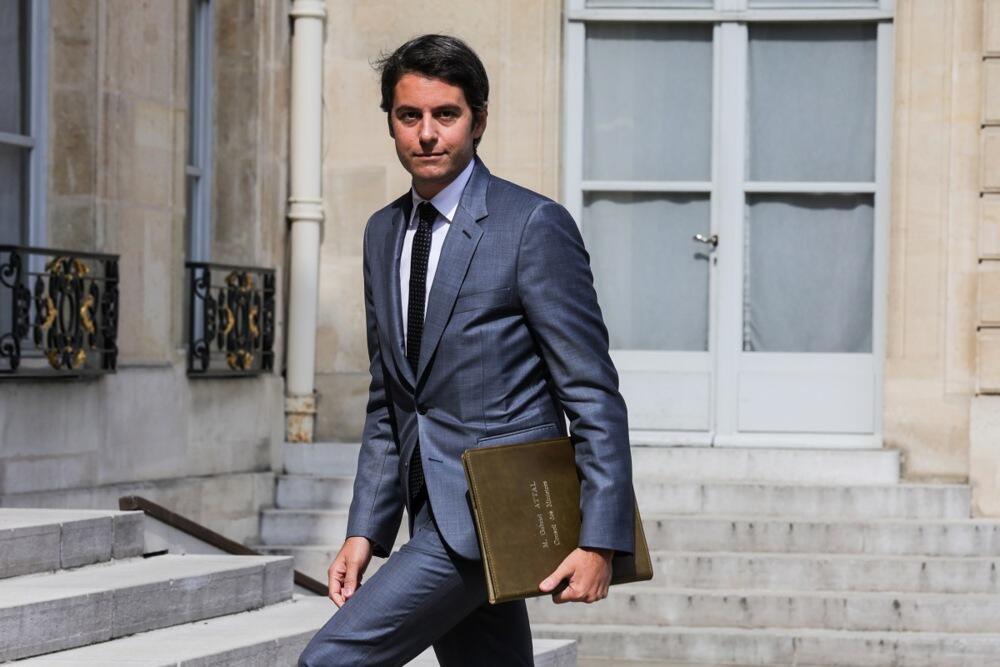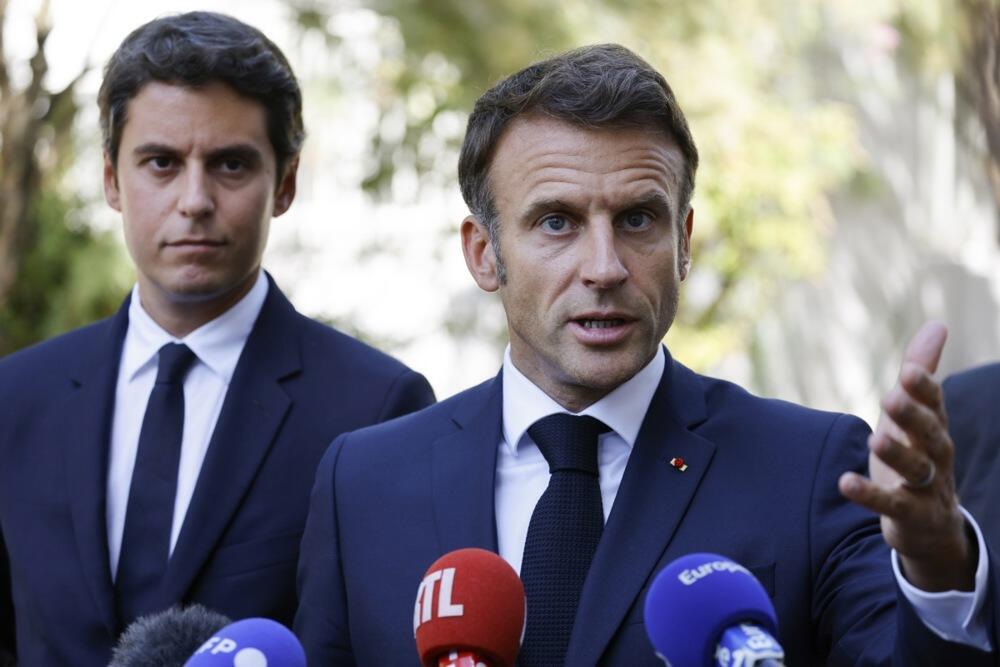Getting your Trinity Audio player ready...
Gabriel Attal, the recently appointed Minister of Education in France, encountered a complex predicament in the previous week. He found himself caught between the longstanding values of the republic, which prioritize the separation of religion and state within public institutions, and a sizable Muslim community of around 10 million individuals who were unlikely to approve of his decision.
Read more:
Gabriel Attal aligned with the principles of the Republic, resulting in a recent ban in September on female students wearing hijabs and male students wearing kippahs in public schools. This decision was prompted by school administrators seeking clarification on acceptable religious symbols, and it reflects an ongoing policy of secularism in schools. For years, students have been prohibited from wearing crosses, kippahs, or any religious attire, including Muslim garments or those associated with other religions.
In France, a country still in the process of healing from the intense riots that ensued following the tragic death of a young Muslim man last June, there were apprehensions the decision would trigger further unrest. However, currently, it appears that the implementation of the decision has been relatively peaceful, with only around 300 Muslim students from various parts of the country being asked to return home and modify their clothing on the first day of school after wearing hijabs to class.
An up-and-comer
In the French Jewish community, which consists of approximately half a million people, there is support for Attal's decision. According to the President of Conseil Représentatif des Institutions juives de France (or CRIF, the umbrella organization of French Jews), Jonathan Arfi, the ban on religious symbols in schools is part of France's established policy, with the aim of not identifying students' religion. "CRIF, along with other Jewish organizations, fully support this. There are, of course, private schools, Jewish and others, where wearing a kippah or any other symbol is allowed, but in public schools, they must adhere to this policy, which is one of France's values."
Did anti-semites target Attal following the decision?
"In this case, there were no extreme incidents, but there were past instances of tweets and anti-Semitic remarks targeting his Jewish heritage. He faced primarily political attacks from far-left parties and also from elements within the Islamic community who resist the separation of religion and state.
"It's important to note that this demand for the ban on religious symbols comes from within the education field itself, with school administrators and institutions seeking a clear guideline that aligns with the country's values. I believe it will be well-received, although there is a specific age group of teenagers in certain areas who oppose and demand the freedom to wear whatever they want, whenever they want. For them, we need to invest in education and provide explanations about the values of the republic and their significance in our shared lives."
Attal, the son of a Jewish father with roots in both Tunisia and Algeria, has emerged as a rising star in France. At just 34 years old, he has made significant strides in local politics and recently made history by becoming the youngest Minister of Education in the country's history. His father, a lawyer and film producer, comes from a Jewish background, while his mother, who is not Jewish, has Russian Orthodox Christian origins.
While Attal has rarely publicly discussed his Jewish heritage or identified as Jewish, he has indirectly addressed attacks against him based on this background, particularly on social media. These attacks have not only targeted his Jewishness but have also focused on his open homosexuality. Attal has revealed that he has received "disgusting" messages and has expressed his intention to address the issue of bullying in schools, which affects not only minority groups like Jews but all students in general, during his tenure as Minister of Education.
In a rare statement on the matter, Attal shared an anecdote with "Gala" magazine. He recounted how his father once told him, "You may not be Jewish, but you will always feel solidarity with the Jewish people because you will always face anti-Semitism due to your family name." Attal acknowledged that he has indeed encountered anti-Semitism throughout his life.
How close is he to the Jewish community?
"Attal maintains positive relations with the Jewish community, despite not identifying as Jewish himself, which is a common sentiment among many politicians. I am aware that he has faced anti-Semitic attacks in the past. Like other leaders in France today, he is well-informed about the issue and actively works to raise awareness and enforce measures when necessary.
Generally, the level of concern among French Jews regarding anti-Semitism is not as pronounced as it was in the past. Following the Toulouse attacks, there was a sense of isolation within the system and a perceived lack of attention from the political establishment. However, there has been an increase in awareness in recent times, with politicians recognizing the gravity of the issue. As a result, there is now a more robust response and a greater sense of security. Nevertheless, the persistence of anti-Semitism from both the right and the left continues to exert pressure on the Jewish community in France.
Can he stand up to Marine Le Pen?
In three years, President Emmanuel Macron will finish his term, and according to the French constitution, he will step down from his position. Based on estimates, the representative of the far-right, Marine Le Pen, will once again advance to the second round in the presidential elections, and the big question is who will take her on.
It is widely expected that the Islamic vote might break the tie, and that community isn't known to be full of Le Pen enthusiasts.
Will Attal Jewish background and sexual orientation be found acceptable with the larger French electorate?
"Hard to say. Initially, Macron's success took everyone by surprise, as France has typically favored more experienced politicians and did not expect a young candidate like Macron to win. Currently, the political landscape is undergoing a shift between the right and the left. Attal stands a good chance, and he is aware of it.
3 View gallery


Muslim community in France could sway elections
(Photo: EPA / Christophe Petit Tesson)
"With three years until the elections, he has ample time to make his mark. The outcome will heavily depend on the momentum leading up to the elections and the identity of the leading candidate opposing Le Pen. Often, people tend to choose the default option rather than necessarily voting for their true preferences. Regardless of Attal's background as a half-Jewish and gay individual, if the majority of the French population opposes Le Pen, they are likely to vote against her."
There are Jews who are fans of Le Pen and even her more right-wing extreme opponent, Éric Zemmour.
"The Jewish community will not openly support her. Her party and some of her supporters have displayed anti-Semitic tendencies, and this fact cannot be ignored. However, there are Jews who face daily pressures, fears, and attacks on the streets. From their perspective, they may believe that Le Pen or even a more extreme candidate can address the issue of anti-Semitism present within the Muslim community. While I understand their reasoning and why they vote for her, we cannot overlook the anti-Semitic voices that emerge from within her supporters."
Will Attal's Jewish heritage play a role?
"Could go either way. His name is Gabriel, so it'll come up one way or another, regardless of whether or not he's connected to the Jewish community."




